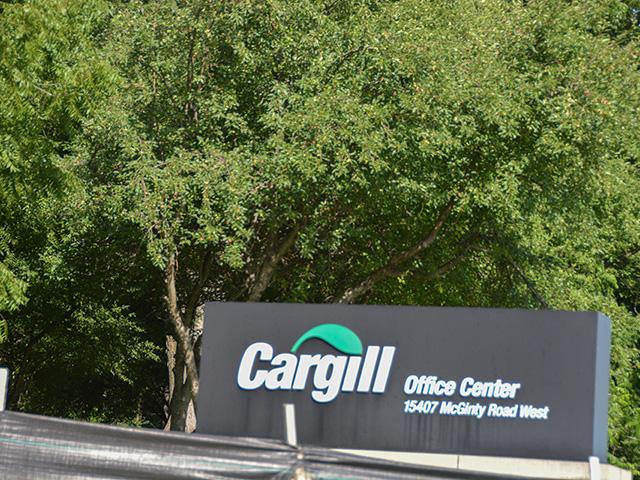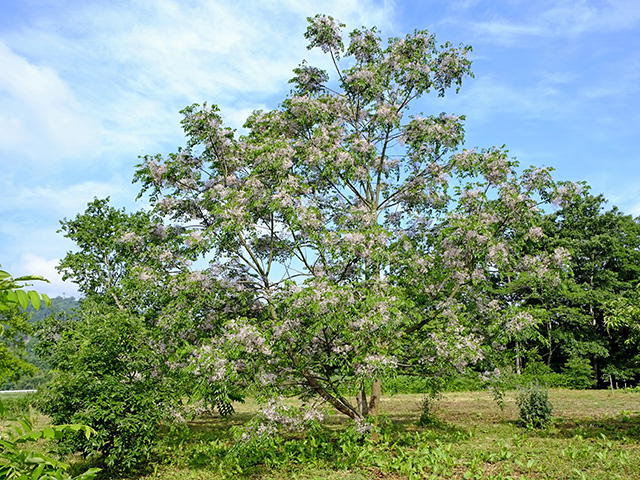Ask The Vet
Downed Trees Can Be Toxic
READER: We had a bad windstorm and lost a lot of trees. One of them was a chinaberry, and it was just loaded with berries. When I found it, several of my cows were eating those berries. I moved them off of that pasture until I got the tree cut up and burned. As far as I could tell, none of them got sick. Now, I'm wondering if chinaberries are dangerous to cows, so if this ever happens again, I'll know what to do.
Dr. McMillan: I have never diagnosed any problems in cattle from eating chinaberries, but I do remember as a small child watching the migrating robins literally getting drunk on the fermented berries in late winter and early spring. Toxicity has been reported in pigs, cattle, horses, dogs, rabbits and even people. The toxins are most concentrated in the berries.
Clinical signs include salivation, colic, diarrhea and vomiting. With the consumption of larger amounts, signs can include muscle contractions, tremors, collapse and even death. So, yes, you did the right thing when you removed your cattle from that pasture.
For those unfamiliar with this tree, the chinaberry is native to India, Southeast Asia and Australia. It was imported in the 1930s as an ornamental and planted across the South. Like so many of these imported plants and trees, it is now considered by many to be an invasive species. The tree can grow to up to 50 feet tall. It has prolific fragrance and beautiful purple flowers in the spring. Its leaves can be up to 20 inches long with multiple leaflets. The fruit is a hard, round ball that remains on the tree through late winter and into spring.
P[L1] D[0x0] M[300x250] OOP[F] ADUNIT[] T[]
Downed trees are a common source of toxicity and even death in livestock. Over the years in our area, most of these cases have involved wild cherry, oak and acorns, and mountain laurel. It varies from area to area.
I would be interested in hearing from readers who have had problems with downed trees and livestock. This could be helpful to other producers and raise awareness of potential problems.
READER: We have two farms in adjoining counties. For the last few years on one of the farms, we have had a few calves become lame. On some, the joints seemed swollen, and several died. The only difference we can see is location. The cattle are all treated the same. What do you think is going on?
Dr. McMillan: This sounds like a condition commonly called navel ill or joint ill. It occurs when bacteria infect the navel before it dries after birth. In some cases, the infection only involves the navel. It may become hot, swollen and painful. It may fill with pus, and the calf may run a high fever and become very depressed.
If the infection spreads, it can involve the eyes, heart or brain. Most commonly, though, it involves the joints.
Aggressive and early antibiotic treatment, which in valuable calves may include surgical flushing of the affected joints, may be helpful. In many cases though, permanent lameness and death may occur.
Prevention is better than treatment. Critically evaluate calving areas on both farms looking for any differences but with an eye toward sanitation issues. If the calving area is low, wet or muddy, or has areas where manure accumulates, this needs to be corrected. If you can't fix it, move your calving area. Anytime we see common calving areas, we tend to have more of these problems.
I believe cattle should be rotated onto different pastures during calving season, with cross-fencing and pasture rotation being two of the best practices available to improve forage quality, reduce erosion and decrease disease and intestinal parasite incidence.
Also, look at your nutritional and preventive health-care programs. Every operation should have a professionally customized vaccine and parasite-control program. Cattle must have adequate energy, protein and minerals all year long, and be in good body condition at calving. This helps assure that cows produce the highest quality and quantity of colostrum, which is essential in the prevention of calf diseases.
> Please contact your veterinarian with questions pertaining to the health of your herd. Every operation is unique, and the information in this column does not pertain to all situations. This is not intended as medical advice but is purely for informational purposes.
> Write Dr. Ken McMillan at Ask The Vet, 2204 Lakeshore Dr., Suite 415, Birmingham, AL 35209, or email vet@progressivefarmer.com.
[PF_0820]
(c) Copyright 2020 DTN, LLC. All rights reserved.




